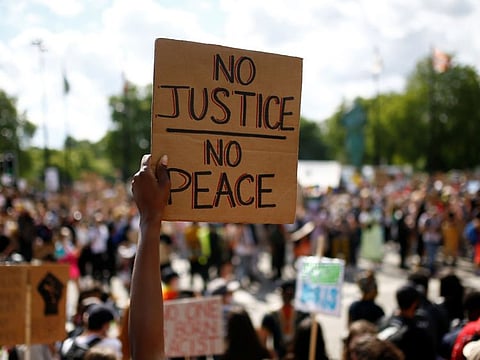Working for the greater good can outlive any pandemic
Businesses cannot keep kicking this particular goal to some distant future

Helping a company’s employees to work from home safely and securely. Managing drone traffic for deliveries of medical equipment. Keeping transport systems running across cities so that healthcare professionals can get to work and patients transferred to other facilities.
Manufacturing ventilators for hospitals. Developing contactless payment and access control solutions…
These are just a few examples of how a company’s expertise can benefit society... and there are more. I list them here not out of self-satisfaction, but to show what technology companies can do to serve the interests of society in a crisis like the one we are experiencing. And to make the case that the role of a company truly goes beyond the pursuit of profit.
A company needs to play a material role in society and make commitments to its stakeholders (employees, customers, suppliers, shareholders, governments, etc.). Its leaders and employees have a duty to give meaning to what that company does.
Redefine that purpose
“A company cannot achieve long-term profits without embracing purpose and considering the needs of a broad range of stakeholders,” said Larry Fink, Chairman and CEO of BlackRock, the world’s largest asset manager, in January. “A strong sense of purpose and a commitment to stakeholders helps a company connect more deeply to its customers and adjust to the changing demands of society. Ultimately, purpose is the engine of long-term profitability,” he wrote in his annual letter to CEOs.
The mission of a company states what the enterprise does. A corporate purpose goes beyond. It has the power to mobilise and to transform by explaining why the company exists and how it ultimately creates value for its customers and society at large.
Having a clear purpose undoubtedly also has the potential to attract young talent, who are extremely sensitive to the meaning of their work and the role of business in society. Thales has defined its purpose as “building a future we can all trust”. It is a statement that took six months to write, six months of consultations with almost 50 per cent of the Group’s 83,000 employees about our deepest motivations and about the needs of society, today and tomorrow.
Move on from endless reports
The extraordinary period we are going through is, I believe, an opportunity for businesses to prove the validity and authenticity of their corporate purpose, particularly in terms of responsibility. After so much talk about corporate responsibility, so many years of reports and declarations, the current period is time to check our facts and transform our words into deeds. As such, it marks the beginning of a new era.
Today, failing to take sides on societal issues is no longer seen as just being neutral. Not speaking out in support of something is now the same as being against it. This is a real change from earlier decades.
Adidas recently shared an anti-racism message posted on social media by its main competitor, Nike. That’s not something competitors are in the habit of doing. I see it as a sign that businesses have come to realise the sheer scale of the challenges facing our complex world, and as material evidence of their responsibility to society.
A dosage of reality
The COVID-19 crisis is a chance for every company to reality-check its corporate purpose and put it to the test. The exercise can be revelatory.
We believe corporate purpose revolves around three components of a future we can all trust: autonomy, resilience and sustainability. And reality shows that all three factors are indeed critical.
Technology providers will need to show material evidence that their resources and capabilities effectively address society’s demands for social and environmental responsibility. We are already on the case, working on concrete ways to reduce our carbon footprint and limit the environmental impact of customers and partners. For example, through our commitments, in making air transport more environmentally responsible, with a target date of 2023, or in manufacturing a payment card containing 70 per cent recycled ocean plastics for a leading card issuer.
Corporate purpose is a moral compass in this crisis. It is helping identify issues most crucial to customers and employees, and to determine how tangible actions can help them most effectively. Together, we can build a future we can all trust.
- Patrice Caine is Chairman and CEO of Thales.







